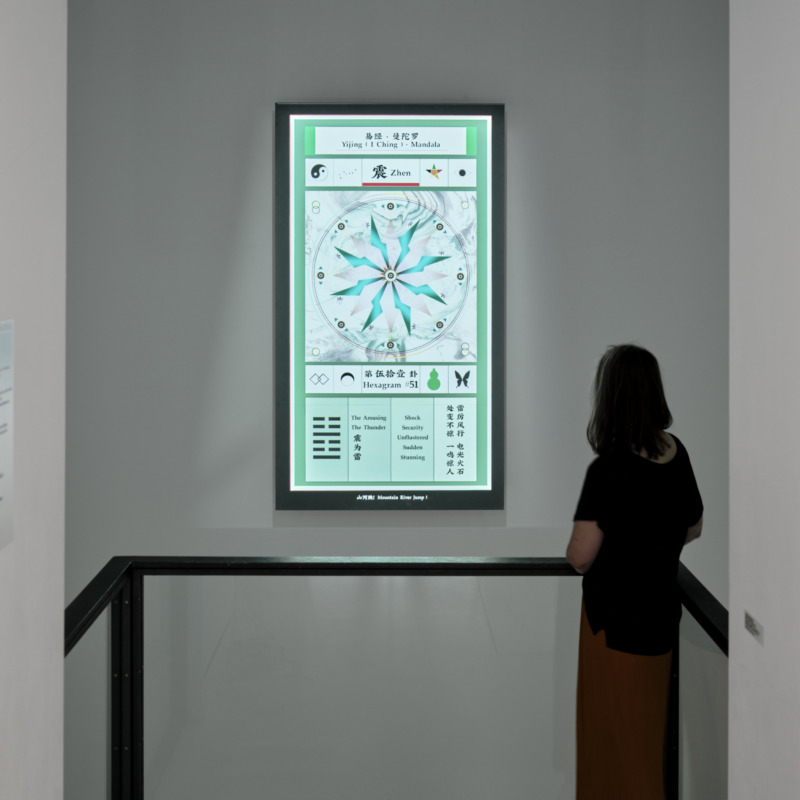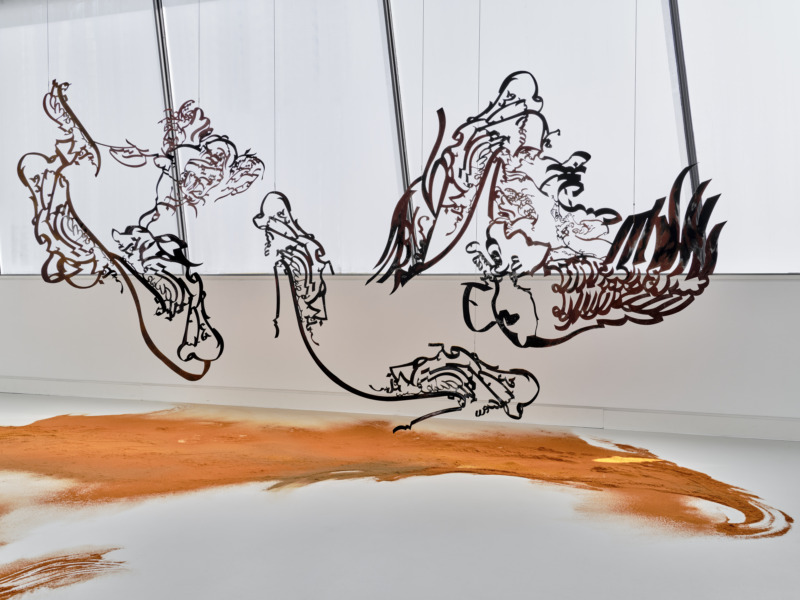
Olga Fröbe-Kapteyn – Deep Knowledge
30/06/23—01/10/23
Kerstin Brätsch
Olga Fröbe-Kapteyn
Hylozoic/Desires
Mountain River Jump!
Sriwhana Spong
We live in a time in which new directions are being defined: Thinkers, activists, art producers, and researchers are questioning given dogmas and generating new knowledge – knowledge that recognises the boundaries of academic disciplines and Western epistemologies; knowledge that is oriented towards holistic worldviews or knowledge systems of diverse cultures. What is also key is to cast a glance back in time and unearth what has been forgotten, overlooked, or erased from history. In the field of art we are discovering positions that, owing to their socio-cultural context, their gender, or their ethnicity, were excluded for a very long time. As outsider art, arts-&-crafts, ritual artefacts, or research practices, they could find no place in the general art discourse.
Olga Fröbe-Kapteyn (born 1881, London, Great Britain; died 1962, Ascona, Switzerland) is precisely such a figure. Her life as a woman, a researcher, a mystic, and an artist is fascinating. In the culturally and politically difficult years prior to World War II, she immersed herself in the-osophy and East Asian philosophy, assembled a huge image archive, and promoted interaction between
different disciplines many years before the word transdisciplinary was on everyone’s lips. Her visual oeuvre, the powerful geometric Meditation Panels and the Visions, which draw from her discussions with psychologist Carl Gustav Jung, are part of her encompassing artistic practice. On the basis of a highly varied pictorial system, Fröbe-Kapteyn sought to find answers to the order of the world and, starting from the notion that forms do have psycho-affective meanings, endeavored to achieve specific effects.
“The most profound things in human life,” she is said to have commented, “can only … be expressed in images.” In the exhibition, five contemporary artists and artist- duos forge a link to the present day. The works by Monia Ben Hamouda, Kerstin Brätsch, Hylozoic/Desires (Himali Singh Soin & David Soin Tappeser), Mountain River Jump!, and Sriwhana Spong explore concepts that counter knowledge shaped by rationality, whiteness, the patriar- chy, and colonialism. In their works they create spaces and narratives in which they invite us to encounter such alter- native forms of knowledge – knowledge that is subconscious, physical, natural, spiritual, etc. Knowledge that usually is not produced and conveyed using words, language, and concepts. The artists often take ritual practices in history and the present as their starting point. Like Fröbe-Kapteyn for her part, they underscore that art is a tool for research, healing, or communication, while in the process adopting anti-colonial positions critical of the power status quo. It becomes clear that instead of the principle of l’art pour l’art, the emphasis is on the impact that art (and with it images in general) can have.
We would like to thank the Eranos Foundation for supporting the presentation of Olga Fröbe-Kapteyn’s works. The exhibition scenography was developed in collaboration with Belle Santos.
The exhibition is realized with the kind support of the Ministry for Families, Women, Culture and Integration and the Mainzer Volksbank.

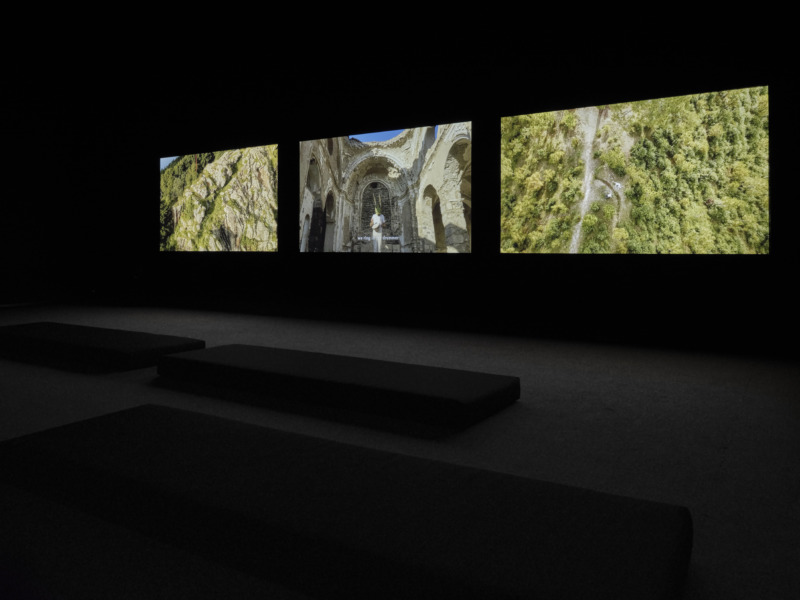
Installation view KHM: Hylozoic/Desires (Himali Singh Soin & David Soin Tappeser): As Grand As What, 2021, © VG Bild-Kunst, Bonn 2023. Courtesy the artists, Photo: Norbert Miguletz
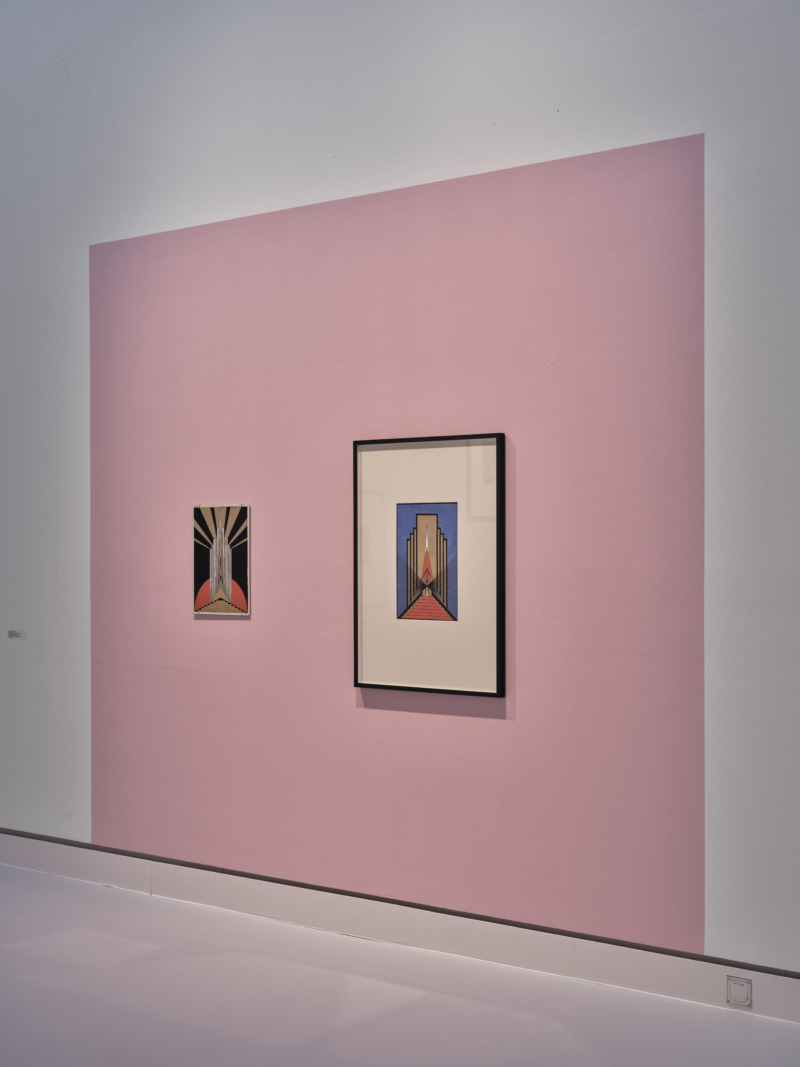
Installation view KHM: Olga Fröbe-Kapteyn: The Portal of Initiation, Ohne Titel, 1926-34. Eranos Foundation, Ascona, Photo Norbert Miguletz
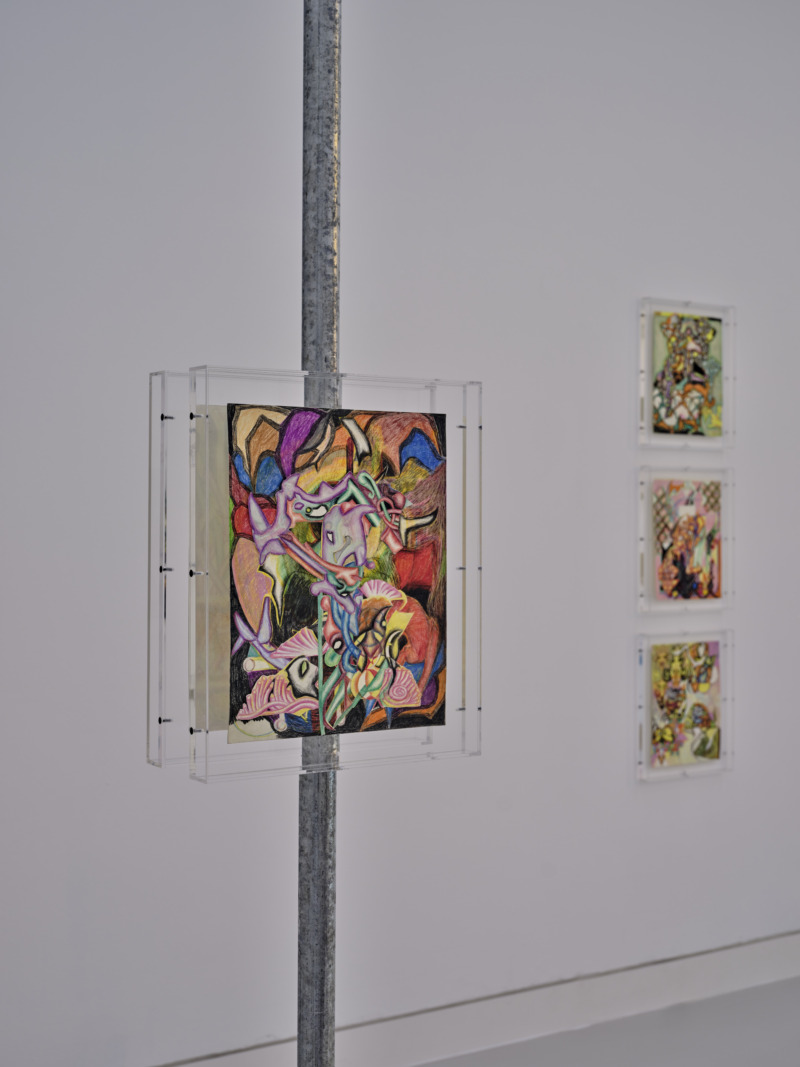
Installationview KHM: Kerstin Brätsch PARA PSYCHIC_Darkening (Squirm), 2020–2021, PARA PSYCHIC_Rand der Welt; _Soulmate; _Pele’s Curse (Frau, Weckerin), 2020-2022. Courtesy by the artist and Gladstone Gallery, Photo Norbert Miguletz
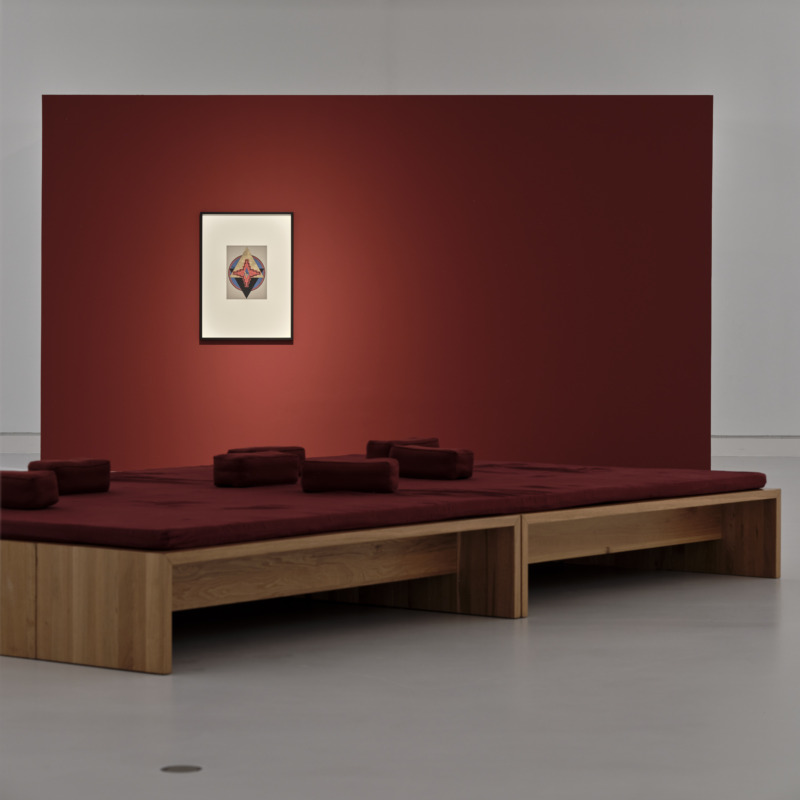
Installation view KHM: Olga Fröbe-Kapteyn: Duality, 1926–34. Eranos Foundation, Ascona, Photo: Norbert Miguletz
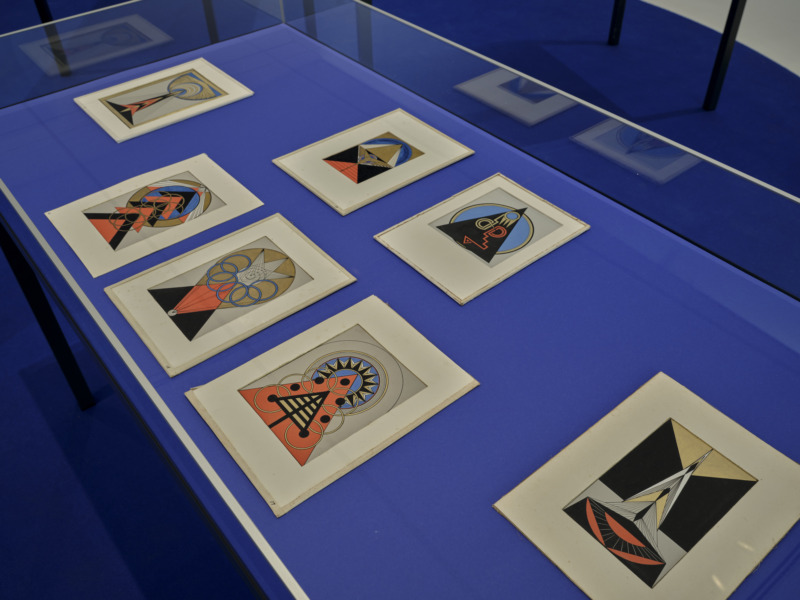
Installation view KHM: Olga Fröbe-Kapteyn: Trasmutation of Pain, Ohne Titel, The Hill of Vision, Meditation, Planeten-Tanz, The Indwelling Presence, Ohne Titel, 1926–34, Dimensions variable. Eranos Foundation, Ascona, Foto: Norbert Miguletz
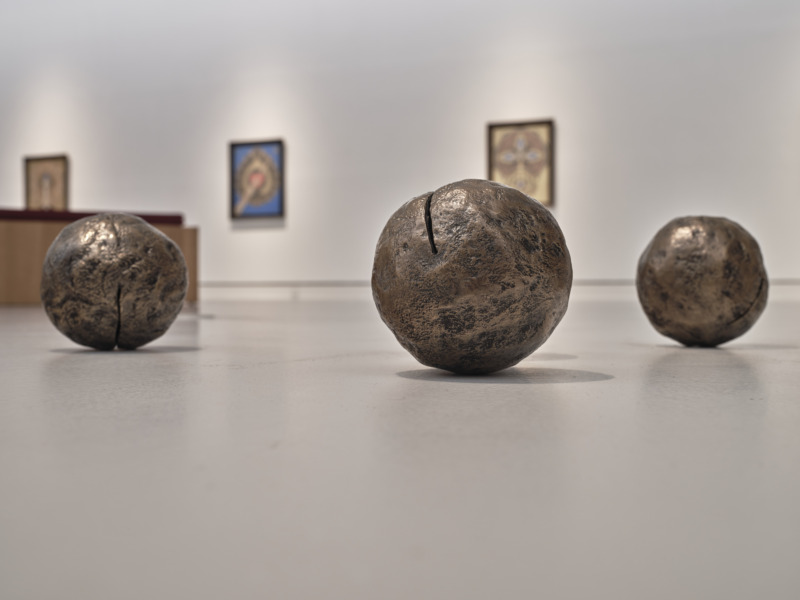
Installation view KHM: Sriwhana Spong: Instrument I (Sevgi und Bengisu), 2022. Courtesy the artist, Photo: Norbert Miguletz
